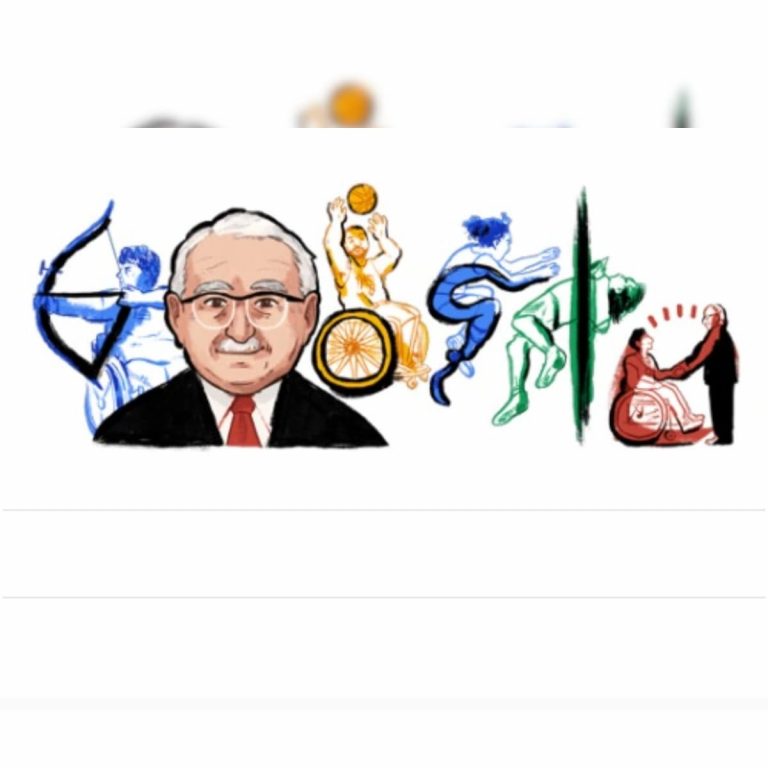Today, Google is celebrating the 122nd birth anniversary of German-born British neurologist Sir Ludwig Guttmann. He is widely regarded as the father of the Paralympic movement. Visiting artist Ashanti Fortson from Baltimore has created today’s special Google Doodle, which you can see above.
A German-born Polish, Ludwig Guttmann was born on July 3, 1899, in Tost (now Toszek, Poland). In 1899, he founded the Stoke Mandeville Games, a sports event for people with disabilities that eventually became the Paralympic Games in England.
Following his graduation from medical school in 1924, he began his study on spinal cord injuries, which he completed within a year. Ludwig Guttmann had already established himself as one of Germany’s leading neurosurgeons by the time he was in his thirties.
Ludwig Guttmann was unable to practice medicine professionally because of the growth of the Nazi party, which culminated in the passage of the Nuremberg Laws in 1933. During World War II, Guttmann and his family were forced to flee to England as a result of rising anti-Semitism throughout Germany.
During his time in England, Guttmann conducted a considerable study on paraplegia and other neurological disorders. In 1948, he organized a 16-person archery competition, which was one of the first officially sanctioned competitive athletic events for people who use wheelchairs. This event, which was subsequently renamed the Stoke Mandeville Games, attracted a great deal of interest from people all around the world.
Guttmann was involved in the organization of the International Stoke Mandeville Games, which took place 12 years later. The International Medical Society of Paraplegia (now known as the International Spinal Cord Society) and the British Sports Association for the Disabled (now known as the Activity Alliance) were both formed by him in 1961. He received several honors for his efforts, the most notable of which was being knighted by Her Majesty the Queen in 1966 for his services to science.
“Today, Paralympic competitors are rightly recognized for their abilities and accomplishments,” says the athlete. People with disabilities continue to benefit from the Paralympic Games, which “have had a long-lasting influence on equality of treatment and opportunity,” according to the Google Doodle website celebrating the Games’ 50th anniversary.

